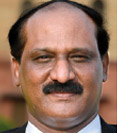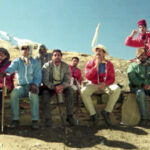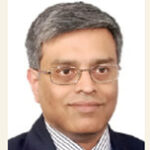THE JNU Students Union lost its resolution in favour of Mandal reservations in the University GBM held at the Jhelum Lawns on August 17, 1990, a day before some of us from JNU left for the Queen of Hills. Getting into LBSNAA from JNU was easier, but it was not easy to settle down from an anti-establishment student community into officer mode. The human chains against segregation of Jhelum hostel, or the protest against killing of students at the Tiananmen square, or slogans like “Ho Ho Ho Chi Minh, we shall fight we shall win; is zor zulm ki takkar mein sangarsh hamara nara hai” were all afresh with the JNU-gang at the Academy.
So, when the Shistachaar class told us that liquor is not allowed in the Academy, a few of them rushed to Whispering Windows to have some. But like all, we were slowly taken into the system, with a feeling lingering that the regimentation has started. Yet, some of us still carry the out-of-box thinking which now suddenly has become very important. I realised that the civil services still give opportunity as was once believed that the civil services are all about bringing social change and that we are the agents of social change. Mandal left ugly scars when a guest lecturer, a professor from Delhi University, cast aspersions of corruption on officers coming from an unprivileged background. But the batch didn’t get too perturbed by Mandal. The batch is about gangs-the JNU gang; USA-returned gang; Gulti gang; Stefenian gang, Maratha Light Infantry. TS Jawahar used to tell jokes the whole night and Jawahar Reddy was called whenever the horses fell ill.
The gangs remain, but transcended the times to excel. I was able to talk on telephone to many of the probationers in their field postings and letter writing was common. Field postings in the first eight years were like youth at the service of the nation. Except three, rest of the batchmates had got married by now. The meeting of the batchmates started when first of the run-away brides landed up in 2000 in Delhi in the Government of India in the form of KK Pathak and Sudhir Rahate. TS Jawahar was first of the PS to Ministers. Some of us have seen all the sarkars at the Centre: NDA-II, UPA I, UPA II and the present one. The work as Deputy Secretary/Director at GOI, driving one’s own car to office (right after being a District Magistrate), still looking for a parking slot at Shastri Bhawan or finding it always a better option to walk to North Block to attend meetings (rather than failing to get parking at the Finance Ministry/Ministry of Home Affairs); standing at the Gestetner to make copies for Parliamentary committee meetings and even numbering them; all was learning.
The file notings were copious and sailed through the bureaucratic chain. Engaging with the ministers was more easy than the bureaucrats as we were trained in the field posting to understand the political verve. National outlook and representing the nation was far more important than finding parking slots at Yojana Bhawan meetings. An array of people with different mindsets coalesce at the Centre to arrive at policies which unify the nation, interesting. Yet, some were shocking for their lack of knowledge about the society of this nation. Found some of them too ordinary to hold posts of high stature. Social Justice Ministry was for me more satisfying than being an officer in Commerce Ministry. When the state welcomes you back after a stint at the Centre, it is not easy to adjust to the state culture and the speed of the state, and we lose the incognito status as some unknown deputy secretary in the horde of bureaucrats.
But the absence of five years from the State takes its Toll-out of sight, out of mind, for the states. We work again to reestablish and find slots grossly unrelated to the work done in Bharat Sarkar and learn new vistas and the journey starts again. The middle level bureaucratic position in policy making becomes more intense and interesting and yet we gain tremendous knowledge from the field, only to plough it back to the next stint at the Centre. Regimes change, ministers change, secretaries change and change itself changes so fast that it is time we look at change. As civil servants, we pave the way for change and yet struggle to grapple with the change. The “agents of social change” tag is lost long ago. The winds of change of 1990s have blown so strong that the batch of 1990 is the one which is at the nerve-centre of the pre-liberalisation civil service and the post-free economy and its products such as out-sourced jobs and out-sourced knowledge economy. But the JNU nerve still lingers on, to be alive and kicking, when you actually retire.
Raja Sekhar Vundru is an IAS officer from Haryana. He is DDG, UIDAI, New Delhi

























































